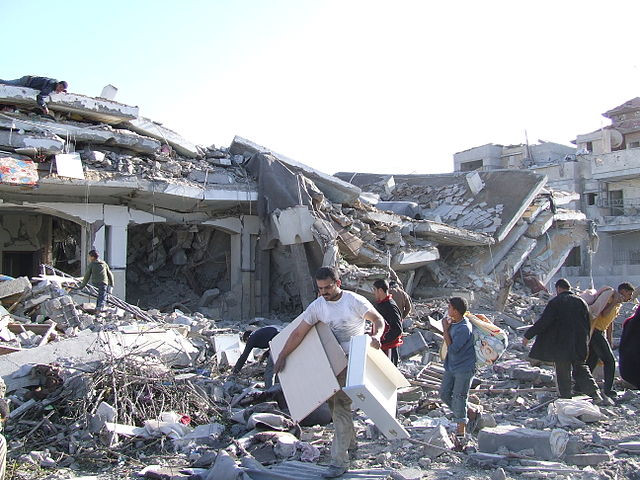The Trump administration is pressuring international humanitarian organizations to support a new Israeli initiative to resume aid distribution in Gaza, even as dozens of community kitchens across the war-torn enclave shut down due to a critical shortage of supplies.
Three sources familiar with the discussions told The Times of Israel that groups including the World Food Program (WFP) have been warned their U.S. funding could be slashed if they do not cooperate with the plan, which is centered on new IDF-managed humanitarian hubs in southern Gaza. Critics say the initiative fails to meet the needs of a desperate population and would require agencies to participate in what they describe as the "weaponization" of aid.
The U.S. has not denied the pressure. "We welcome moves to quickly get urgent food aid into Gaza in a way that prevents it from falling into the hands of terrorists," a State Department spokesperson said. "We have long called for creative solutions and new thinking that leaves Israel secure and helps the people of Gaza." The official also cited President Donald Trump's recent remarks: "We are going to help the people of Gaza because they are being treated very badly by Hamas."
GHF, the Gaza Humanitarian Foundation, created in January to support the new distribution mechanism, is leading the initiative, which is being coordinated with U.S. security contractors and Israeli authorities. Yet, the organization's leadership lacks experience in humanitarian operations, according to a Western diplomat familiar with its structure.
The first hub is under construction in a new humanitarian zone stretching from the Philadelphi Corridor to the Morag Corridor in southern Gaza. Israeli officials say the 10% area of the Strip is sufficient to house the territory's 2 million residents, though no country has agreed to accept refugees, and Israel has made no promise to allow displaced civilians to return.
Meanwhile, the World Central Kitchen, which had been serving hundreds of thousands of free meals daily, ceased operations this week after running out of ingredients. Amjad al-Shawa, head of the Palestinian NGO Network, said over 400,000 meals were lost after 170 Gaza kitchens were shuttered. "Everyone in Gaza today is hungry. The world must act now to save the people here," Shawa told Reuters from Gaza.
Shawa warned that existing aid plans, which envision only 60 trucks entering daily, are insufficient. "The hunger catastrophe is beyond words," he said. "People are losing their lone source of food."
Palestinians now report extreme shortages and declining quality in available goods. "The flour is full of mites and sand," said Mohammad Abu Ayesh, a displaced father of nine. "We sieve it three, four times, instead of once, so we can bake it."
Aid officials fear famine is imminent. The U.N. Office for the Coordination of Humanitarian Affairs (OCHA) says over 2 million people in Gaza face severe food insecurity. A 25 kg sack of flour now sells for about $500, up from $7 before the blockade.





